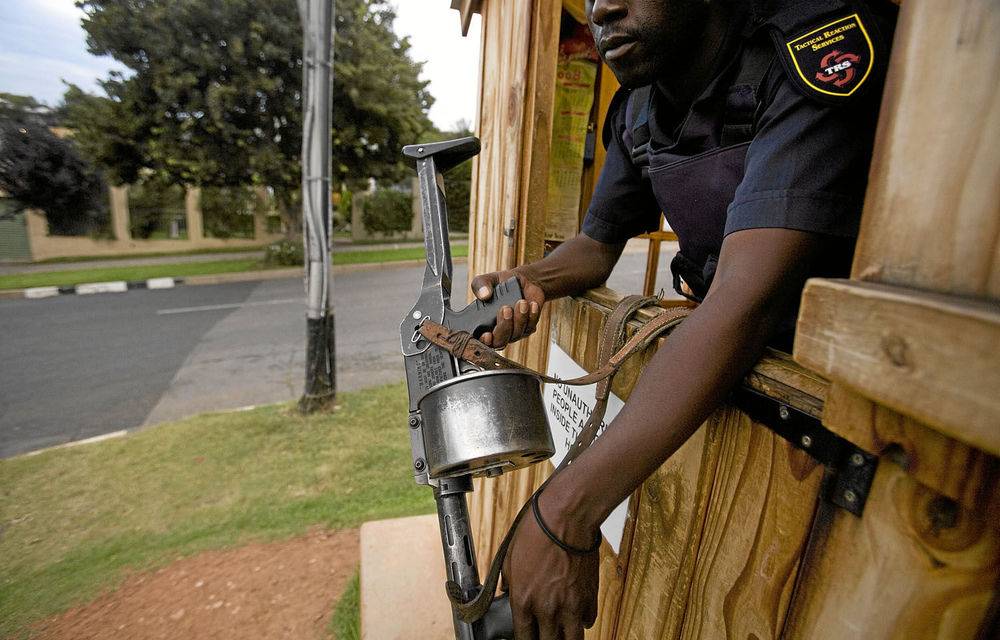The Private Security Industry Regulatory Authority (PSIRA) says it is not aiming to ban the R50 billion security sector from using firearms
The Private Security Industry Regulatory Authority (PSIRA) says it is not aiming to ban the R50 billion security sector from using firearms and that the proposed regulations merely seek to restrict gun use in line with international standards.
This comes after security businesses and legal experts raised fears this week that the regulations would disarm the private security industry and lead to an escalation in violent crime and job losses.
However, Gun Free South Africa said: “The recently published draft regulations for South Africa’s private security industry are a much-needed step toward addressing a regulatory gap that has persisted for far too long.”
In a statement on Friday, the authority acknowledged the “significant public and industry interest” sparked by the draft amendments to the private security industry firearms regulations that Police Minister Senzo Mchunu gazetted on 28 March.
“We welcome this engagement, as it will generate valuable input from stakeholders for consideration,” it said.
According to the draft proposals, security firms would only be allowed to use semi-automatic rifles for cash-in-transit services, guarding critical infrastructure and anti-poaching activities and only a “reasonable quantity” of ammunition can be used.
Security officers would no longer be allowed to carry firearms in public spaces, such as shopping malls, hospitals, taxi tanks, churches, schools and residential areas, unless they meet onerous new requirements, including filing a risk-assessment report.
The draft also bans the use of “less lethal” weapons, such as rubber bullets, water cannons and conducted-energy devices (Tasers), unless a company obtains an exemption seven days before their use via a complex application process.
In addition, all firearms must be fitted with tracking devices; all armed security officers must undergo annual medical, psychometric and psychiatric evaluations at their employer’s expense and companies under investigation may not issue firearms to their employees.
PSIRA said the private security industry played a critical role in South Africa’s safety and economic landscape.
“It contributes to crime prevention and public protection and is a major employer, with over 600 000 registered security officers. As a R50 billion industry, it is also one of the largest providers of entry-level employment opportunities, after the government, and continues to invest significantly in training and skills development,” the authority said.
“In light of the proposed changes, PSIRA reiterates its commitment to ensuring that any regulatory amendments will not compromise the industry’s ability to function effectively. These proposed changes are part of a broader effort to strengthen compliance and oversight, informed by an industry needs analysis.
“The authority seeks to strike a balance, supporting the legitimate operations of
the industry while addressing concerns about non-compliance and rogue elements. There is no ban on the use of firearms by private security personnel.
“The proposed amendments do not prohibit firearms outright but introduce conditions under which specific calibres may be used — enhancing oversight, not limiting lawful operations.”
It stressed that the proposed regulations did not restrict the quantity of ammunition issued to security personnel but the aim was to ensure they were adequately equipped, allowing for the “reasonable use of ammunition in line with operational requirements”. The measures were designed to protect responsible operators and improve industry standards, not hinder lawful businesses, it added.
It noted that only the South African Police Service and public-order police use water cannons, rubber bullets and Tasers for crowd control and maintaining public order during protests.
“Security officers do not use the above tools for crowd dispersion. The prohibition is based on the fact that the listed prohibited weapons, though considered low risk, are known to cause serious injuries,” the authority said.
PSIRA said it had included the requirement of tracking who has a firearm and when to prevent theft, misuse and the loss of firearms, as well as to monitor their movements in real time during operations. The rule would also assist investigations “if something goes wrong like a shooting or a firearm going missing”.
The proposed regulations were in line with international standards.
“In other jurisdictions, the regulations are in fact far more stringent … the regulations remain in the proposal stage and are also meant to serve as an invitation to have a dialogue with all affected stakeholders in order to create a regulatory framework that is fair but also fit for purpose,” the authority said.
“We encourage all stakeholders and the public to continue submitting their comments and concerns as part of the consultation process.”
The draft regulations are open for public comment until 25 April.
Crédito: Link de origem



Comments are closed.